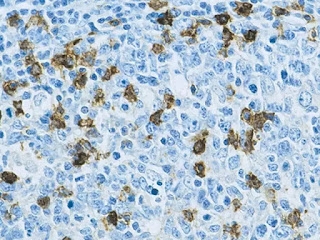Hepatoblastoma is a rare pediatric liver cancer, usually diagnosed in the first three years of life. There are many subtypes of hepatoblastoma, the two major ones are fetal and embryonal.
Scientists have identified new biomarkers that could accurately classify the two main subtypes of hepatoblastoma, a children liver cancer.
Different types of hepatoblastoma use different nutrients to grow. Some use glucose or fatty acids. The genetics of hepatoblastoma involves frequent mutations in the gene CTNNB1. This gene produces the protein beta-catenin, which is involved in cell-cell adhesion and gene transcription. Because of its dual function, mutations of the CTNNB1 gene can cause hepatoblastoma cancer.
Beta-catenin is a component of a signaling pathway known as Wnt/beta-catenin, which is responsible for regulating the expression of multiple genes. Many components of the Wnt/beta-catenin pathway are affected and overactive in various tumors.
Researchers examined the relationship between the CTNNB1 gene and the cell’s metabolism, they discovered that beta-catenin, as part of the Wnt signaling pathway directly regulates the expression of a gene that produces a glucose transporter protein. GLUT3
They used RNA sequencing to identify molecular and metabolic features that are specific to hepatoblastoma. This approach revealed that several enzymes involved in the metabolism of glucose are overexpressed in embryonal hepatoblastoma cells as compared to fetal hepatoblastoma cells.
Embryonal hepatoblastoma cells show high levels of glucose uptake, they also discovered that these cells are very sensitive to the perturbation of an enzyme involved in the cell’s use of glucose. They immunohistochemistry of the three metabolic biomarkers to distinguish embryonal from fetal components out of a large panel of human hepatoblastoma biopsies.
The study shows that the Wnt/beta-catenin pathway is important for reprograming the energy management of tumor cells. It also provides a new
metabolic classification of human hepatoblastoma that can help oncologists develop novel diagnostic methods and treatments.
haleplushearty.blogspot.com


